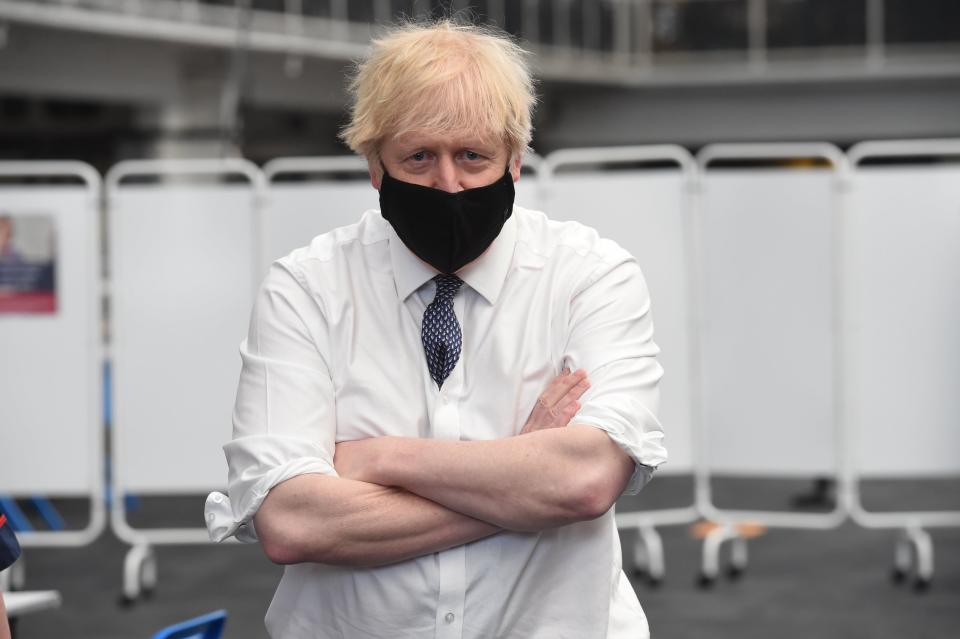British travellers slam ‘botched’ government messaging over amber list holidays

Boris Johnson has advised Brits not to travel to amber and red countries
(PA)British travellers have criticised the government for its “botched”, “unclear” and “confusing” messaging over holidaying in amber list countries.
The international leisure travel ban officially lifted in England on 17 May, with foreign holidays no longer prohibited by law.
Travel relaunched under a traffic light system, with countries classified as green, amber or red and prescribed restrictions to match based on the risk of arrivals importing new Covid-19 infections to the UK.
Only 12 destinations, most of them inaccessible to British visitors, made the “green list”, while the Department for Transport advised that people should not be visiting amber or red list countries for “leisure purposes”.
However, the government advice is just that – advice – and travellers are no longer legally prohibited from heading abroad for recreational reasons, no matter their destination.
They need not prove an essential reason for travel, nor will they face penalties or fines for departing for a non-green list country on holiday.
The issue was further confused by the environment secretary, George Eustice, who said the amber list was for people who “feel they need to travel either to visit family or friends”.
“They can travel to those countries but they then have to observe quarantine when they return and have two tests after returning,” he told BBC Radio Four’s Today programme.
“People can travel to those areas but they then have to subject themselves to the quarantine requirements.”
The prime minister was forced to rebuff these assertions, with his Downing Street aides stating that Britons should not be going on holiday to amber list destinations.
The mixed messaging has led to criticisms on social media, with many struggling to understand what the new rules mean.
“I’m confused about the do not travel to amber countries,” tweeted Twitter user Stefania. “Have they made it illegal now or do we have to show special documents?”
Another user tweeted Boris Johnson, commenting: “You need to be pressing the message about people not allowed to holiday in amber countries. The message is VERY unclear and confusing. Even airlines are putting extra flights in.”
Meanwhile, Eileen Hoang wrote: “If UK govt really wants to stop travel abroad, then put every country on the red list! Otherwise stop telling people they shouldn't be travelling to amber countries, esp when there are no means of enforcement!”
There were a number of criticisms questioning the point of having an amber list at all, when the advice not to travel there was the same as that applied to red list countries.
Rory Boland, travel editor of Which?, added that consumers could soon be hit by the unclear nature of the rules.
“Travel to amber list countries is another looming battle between holiday companies and customers,” he said.
“Millions of people who rebooked last year will not want to travel to countries listed amber. When they find out they can't have a refund they are angry.”
And, in fact, the UK’s largest tour operator Tui was today telling customers that holidays to amber list countries would be going ahead as planned, though travellers can “amend your booking free of amendment fees up to 14 days before departure”.
Other critics called the messaging “mixed” and “botched”, while Ben Isaacs perhaps expressed his frustration most succinctly: “If the government doesn't want people travelling to an amber list country for a holiday (I'm planning to do just that in July) then put the countries on the red list.
“Travelling to a particular country can't be ‘a bit banned’. That's like being ‘a bit pregnant’.”
Read More
Holidaymakers prepare to jet off as Covid travel rules ease
How can I get a holiday refund if my destination is on the red or amber list?
Can I travel to amber and red list countries? UK travel rules explained

